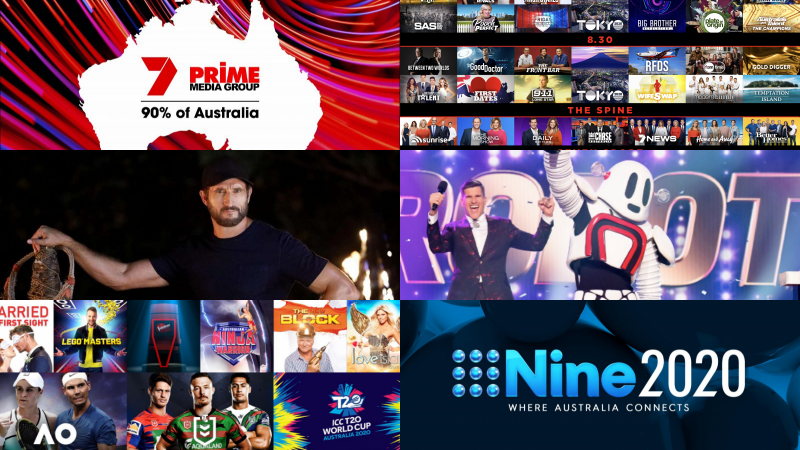Recycled formats (and reality stars), ‘gems’ like Mega Mini Golf, and a possible demand-side platform: Media agency execs review upfronts 2020
What impressed (and disappointed) those who control the purse strings at 2020’s upfronts? Mumbrella’s Brittney Rigby asked Michael Bass, Nicola Lewis, John Lynch, Victor Corones, Paul Wilkinson and Sarah Keith to review what the TV networks are offering up next year.
Upfronts season is over, and mere days after Seven’s event – the last of the three major networks to present in as many weeks – all that is left are flashes.
Ten, the first off the block, is: The James Corden x Rod Prosser (Ten’s chief sales officer) Carpool Karaoke segment. Osher in an excellent suit. New (unexpected) Masterchef judges. The weird inclusion of the Kerri-Anne Kennerley vs Yumi Stynes Studio 10 segment in a reel, juxtaposed with footage of Kennerley traveling to visit Indigenous communities to ‘atone’. A performance by a wolf. In a mask. That turned out to be Rob Mills (we knew it all along).


